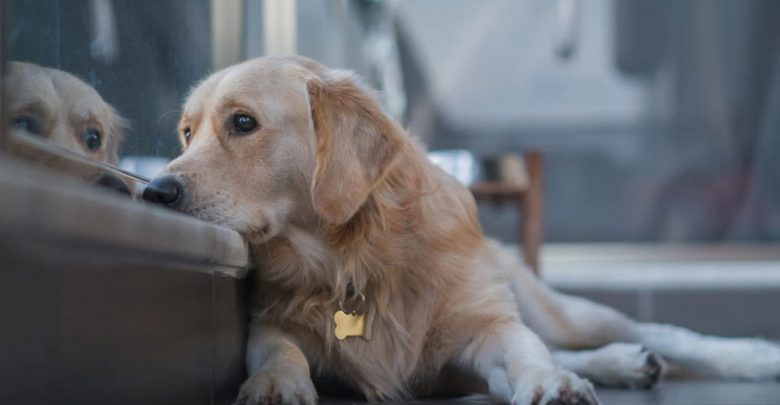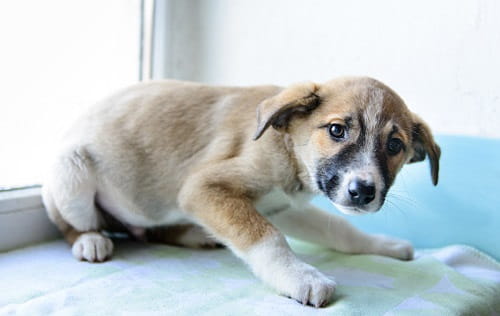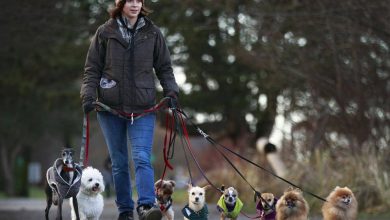Dog Shivering After Vaccine? This Could Be The Reason!

Being a dog owner seems to be the most difficult job in the world when you have to take your floof ball for a syringe-full of liquid during dog vaccinations. But this is what all responsible dog owners do to keep them safe, vaccinated and healthy!
Yes, your furry best friend will shiver after getting a vaccine shot but it’s all worth it in the end when you see their happy wagging tail. It can be tough to watch your pup endure this short-lived discomfort but it’s nothing in comparison to the long-term health benefits of being vaccinated.
So don’t feel guilty next time you see your dog shivering after their vaccine shot, know that you are doing everything you can to keep them happy and healthy! Below, we are compiling a detailed list of what to expect after your pup gets vaccinated so you can be fully prepared.
Why is My Dog Shaking After Vaccines?

A common question that pet parents have is why their dog shakes after getting vaccinated. While it is normal for dogs to experience some minor side effects after getting vaccinated, shaking can SOMETIMES be a sign of a more serious reaction.
Some common vaccine reactions include:
- Facial swelling
- Difficulty breathing
- slight fever
- Infectious diseases
- Runny nose
If your dog starts shaking after getting vaccinated, it’s important to watch him closely and call your veterinarian if he seems too serious. Generally, a dog might be shivering and shaking due to the following reasons:
1. Pain on The Injection Site
Some canine vaccines can cause a bit of pain and irritation at the injection site. This is usually mild and goes away within a few days. However, if your dog is shaking more than usual or seems to be in a lot of pain, contact your veterinarian immediately.
2. Mild Fever or High-Grade Fever
Dogs can sometimes get a fever after getting vaccinated. A fever isn’t usually cause for alarm, but it’s important to keep an eye on your pup and make sure he doesn’t get too hot. If your dog’s fever is over 103 degrees Fahrenheit, contact your veterinarian.
3. Allergic Reaction
Some dogs can have a mild allergic reaction to vaccines. This might manifest as shaking, excessive scratching, or swelling at the injection site. If your dog has a bad allergic reaction, he might start vomiting, have diarrhea, or develop hives. Contact your veterinarian immediately if you think your dog is having an reaction to his vaccines.
4. Neurological Issues
In rare cases, vaccines can cause neurological issues in dogs. This might manifest as seizures, tremors, or unsteady movement. If your dog starts shaking after getting vaccinated and you are concerned, please contact your veterinarian.
While most of these are mild reactions, with minor effects and go away on their own, it’s always important to be aware of the potential risks and adverse reactions associated with vaccinating your dog.
What to Do If Your Dog Develops Mild Lethargy After Vaccination?
There are many strategies you can use to help your dog feel better if it is shivering after getting vaccinated. Some simple tips include:
- Providing Some Space To Your Dog – After getting a vaccine, many dogs feel overwhelmed and need some time to themselves. If your dog is shivering, try to give it some space to relax.
- Keeping Your Dog Warm – Dogs often feel cold after getting a vaccine, so make sure you keep them warm. You can do this by providing them with a comfortable place to rest or by using a heating pad.
- Offering Plenty of Water and Food – Dogs may not feel like eating or drinking after getting a vaccine, but it is important to make sure they have plenty of fluids and nutrition.
- Contacting Your Veterinarian – If your dog continues to shiver after getting vaccinated, it is important to contact your veterinarian for advice. They may be able to provide you with additional tips or medication to help your dog feel better.
Things to Watch Out For After Your Dog Gets Vaccinated
Just like with any other medical procedure, there are a few things to watch out for after your dog gets vaccinated. Here are a few of the most important ones:
- Make sure that your dog drinks plenty of water in the hours and days following their vaccination. This will help flush out any potential toxins from the vaccine and prevent firm swelling.
- Monitor your dog for signs of reaction. These can include excessive scratching, chewing, or licking, swelling or redness at the injection site, vomiting, diarrhea, and labored breathing. If you notice any of these nervous systems’ related symptoms, contact your veterinarian right away.
- Keep an eye on your dog’s behavior in the days following their vaccination. If they seem lethargic or uninterested in playing, it may be a sign that they’re not feeling well. Contact your vet if this is the case.
It’s important to keep your dog’s vaccination schedule up-to-date, as vaccinated dogs are much less likely to get sick. Follow your veterinarian’s recommendations for when and how often to vaccinate your dog.
How Long After The Vaccine Can My Dog Get Severe Reaction?
It is very rare to have a bad reaction after a vaccine. Most reactions tat typically occur are mild and in a vast majority of cases, go away on their own within a few days. Generally, for any kind of reaction, it should develop no later than within approximately twenty four hours after the vaccine was given. If you are concerned, please contact your veterinarian.
Do Dogs Shiver After Lyme Vaccination or Lepto Vaccination?
There is no evidence that dogs experience shivering after receiving a Lyme or Lepto vaccine. While some dogs may feel a little chilled after getting a vaccine, this is not typically associated with shivering. If your dog seems to be shivering after getting vaccinated, it is important to check with your veterinarian to rule out any potential causes.
Conclusion
Dogs can get sick from multiple vaccinations, but this is very rare. Most dogs will experience only mild side effects from getting vaccinated, such as a little bit of swelling or redness at the injection spot. Serious side effects are extremely rare. It is important to keep your dog’s vaccination schedule up-to-date, as vaccinated dogs are much less likely to get sick. Meet your vet immediately and take recommendations for when and how often to vaccinate your dog.

